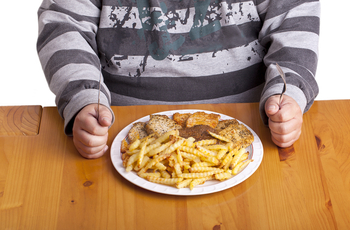
Food, like chemical substances, can be addicting. Many people use food as a comfort when feeling down, depressed, anxious, stressed or angry. Foods high in sugar, salt, starch and fat are the most addictive and can trigger the brain with "feel-good" chemicals, similarly to heroin or cocaine. When food addicts experience pleasure from feel-good chemicals, such as dopamine that are released after eating certain foods, they quickly feel the need to eat again.
An addiction to food can also lead to a tolerance of food, meaning the food addict becomes less and less satisfied by food, leading them to eat more. Scientists believe this is the link between food addiction and obesity.
Like an addiction to drugs or alcohol, food addicts will struggle to simply stop their addictive behavior, even when the behavior leads to weight gain, or damages relationships. Food addicts need help from a professional counselor to overcome their addiction.
Signs of food addition:
- Keep eating certain foods, even when you aren't hungry?
- Eat more than you planned when you start eating?
- Eat until you feel sick?
- Go out of your way to eat certain foods?
- Focus so much on eating certain foods that you'll eat rather than working, spending time with loved ones or participating in other activities?
- Find it difficult to function at school or work because of a fixation on food?
- When you cut down on certain foods, do you experience anxiety, agitation or other physical symptoms?
- Eat to reduce negative emotions or increase pleasure?
If you answered "yes" to any combination of the above questions, you may be suffering from food addiction. Treatment for food addiction is different from treatment for addiction to drugs and alcohol because, unlike these substances, you cannot simply quit eating. A professional food addiction specialist and a nutritionist may be able to help you break the cycle of your addiction to food.
If you or someone you love suffers from an addiction to food, seek professional help. Food addiction can lead to obesity resulting in numerous other health complications.
For more by Tennie McCarty, click here.
For more on eating disorders, click here.
